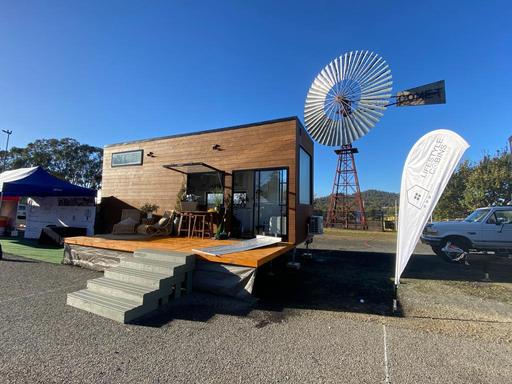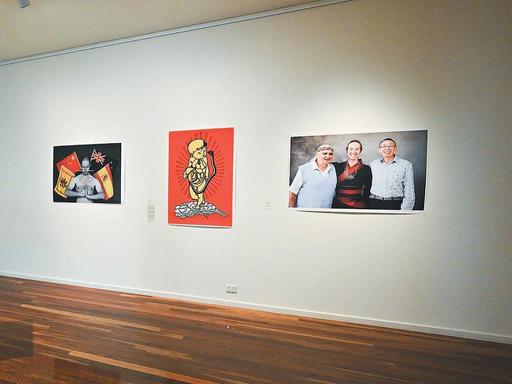when: 27 April 2022 | venue: Online | cost: Free | address: See event description for details on how to connect. | website: https://www.australiachinarelations.org/content/prcs-2022-economic-outlook-what-australia-needs-know-webinar | tickets: https://utsmeet.zoom.us/webinar/register/WN_Pw-Nti2vSe6fnZrf0CKIog
published: 27 Apr 2022, 5 min read
This showcased event has concluded.
Expired
Lockdowns in centres of commercial activity and no clear national strategy for living with COVID-19 is the latest challenge confronting the People's Republic of China's (PRC) economy.
The potential for geopolitics to spill over to disrupt the PRC's trade and investment has also increased after Beijing refused to condemn the Russian invasion of Ukraine. And none of the structural headwinds facing the PRC economy - US-PRC strategic competition, unfavourable demographics, rising debt, amongst others - have disappeared. For all of these reasons many analysts see Beijing's growth target of 5.5 percent this year as being increasingly unrealistic.
Add in an energy transition towards less carbon-intensive growth and a campaign of economic coercion unleashed against around a dozen Australian exports since May 2020 and not surprisingly there are assessments that the best days of the Australia-PRC economic relationship are behind us. Yet the PRC economy has consistently proved such predictions wrong in the past and there remains the fact that in 2021, the PRC's purchases of Australian goods hit a record high of $179 billion, accounting for 39 percent of the total.
Does Beijing still have the capacity and the will to inject short-term policy stimulus at a cost of necessary structural reforms? To what extent is economic policy in the PRC these days constrained by politics, whether it be geopolitical spats with the US over COVID-19 or the upcoming 20th Party Congress later in the year? What do we know about the sensitivity of economic transactions to political tensions, particularly between the PRC and Australia and its strategic friends? Is there respite on the horizon for Australian companies hit with disrupted market access?
The Australia-China Relations Institute at the University of Technology Sydney (UTS:ACRI) in partnership with the University of Sydney China Studies Centre will host a webinar with Professor Yiping Huang, Deputy Dean and Sinar Mas Chair Professor of Finance and Economics at the National School of Development at Peking University; Professor Jane Golley, UTS:ACRI Advisory Board member and Professor at the Crawford School of Public Policy at the Australian National University; and Su-Lin Tan, Asia correspondent for the South China Morning Post, on a panel moderated by Professor James Laurenceson, UTS:ACRI Director, to discuss these questions and more. This discussion will be followed by audience Q&A.
About the speakers
Professor Yiping Huang
Yiping Huang is Sinar Mas Chair Professor of Finance and Economics, Deputy Dean of the National School of Development, and Director of the Institute of Digital Finance, Peking University.
Professor Jane Golley
Jane Golley is a Professor and economist at the Crawford School of Public Policy at the Australian National University and a member of the Advisory Board of the Australia-China Relations Institute at the University of Technology Sydney.
Su-Lin Tan
Su-Lin Tan joined the South China Morning Post in 2020 after The Australian Financial Review where she covered housing and commercial property, Asian business and street talk and investigations.
Content from UpNext.com.au. Please don't scrape website.
Lockdowns in centres of commercial activity and no clear national strategy for living with COVID-19 is the latest challenge confronting the People's Republic of China's (PRC) economy.
The potential for geopolitics to spill over to disrupt the PRC's trade and investment has also increased after Beijing refused to condemn the Russian invasion of Ukraine. And none of the structural headwinds facing the PRC economy - US-PRC strategic competition, unfavourable demographics, rising debt, amongst others - have disappeared. For all of these reasons many analysts see Beijing's growth target of 5.5 percent this year as being increasingly unrealistic.
Add in an energy transition towards less carbon-intensive growth and a campaign of economic coercion unleashed against around a dozen Australian exports since May 2020 and not surprisingly there are assessments that the best days of the Australia-PRC economic relationship are behind us. Yet the PRC economy has consistently proved such predictions wrong in the past and there remains the fact that in 2021, the PRC's purchases of Australian goods hit a record high of $179 billion, accounting for 39 percent of the total.
Does Beijing still have the capacity and the will to inject short-term policy stimulus at a cost of necessary structural reforms? To what extent is economic policy in the PRC these days constrained by politics, whether it be geopolitical spats with the US over COVID-19 or the upcoming 20th Party Congress later in the year? What do we know about the sensitivity of economic transactions to political tensions, particularly between the PRC and Australia and its strategic friends? Is there respite on the horizon for Australian companies hit with disrupted market access?
The Australia-China Relations Institute at the University of Technology Sydney (UTS:ACRI) in partnership with the University of Sydney China Studies Centre will host a webinar with Professor Yiping Huang, Deputy Dean and Sinar Mas Chair Professor of Finance and Economics at the National School of Development at Peking University; Professor Jane Golley, UTS:ACRI Advisory Board member and Professor at the Crawford School of Public Policy at the Australian National University; and Su-Lin Tan, Asia correspondent for the South China Morning Post, on a panel moderated by Professor James Laurenceson, UTS:ACRI Director, to discuss these questions and more. This discussion will be followed by audience Q&A.
About the speakers
Professor Yiping Huang
Yiping Huang is Sinar Mas Chair Professor of Finance and Economics, Deputy Dean of the National School of Development, and Director of the Institute of Digital Finance, Peking University.
Professor Jane Golley
Jane Golley is a Professor and economist at the Crawford School of Public Policy at the Australian National University and a member of the Advisory Board of the Australia-China Relations Institute at the University of Technology Sydney.
Su-Lin Tan
Su-Lin Tan joined the South China Morning Post in 2020 after The Australian Financial Review where she covered housing and commercial property, Asian business and street talk and investigations.
Go see The PRC's 2022 economic outlook - What Aus needs to know.

The PRC's 2022 economic outlook - What Aus needs to know is on 27 April 2022. See start and end times below. Conveniently located in Sydney. Call 02 9514 8953 for details. Visit their website at https://www.australiachinarelations.org/content/prcs-2022-economic-outlook-what-australia-needs-know-webinar.
Are we missing something? Help us improve this article. Reach out to us.
Event Details
Are you looking for 'Things To Do' ideas?
Upnext Team
We love helping people
See recent events discovered by Upnext Team

Expired
Adelaide Tiny Home Expo 2023
Discover Tiny Houses and why they are taking Australia by storm. Tiny houses on and off wheels, luxury Airbnb models, m...

Expired
Drag Bingo & Cocktail Fun! 2023
Celebrate a Sunday afternoon with Bingo with a difference...Drag Bingo.Join hosts Fifi and Princess Laya as they perform...

Expired
Have You Eaten? 2023
Have You Eaten? is an immersive art exhibition that invites you to consider your perfect picnic, favourite foods, and co...

Expired
Punk Protest Propaganda 2023
Discover The Political Art of Fahmi Reza, a captivating exhibition at Nexus Gallery.Fahmi Reza, a self-taught Malaysian ...













